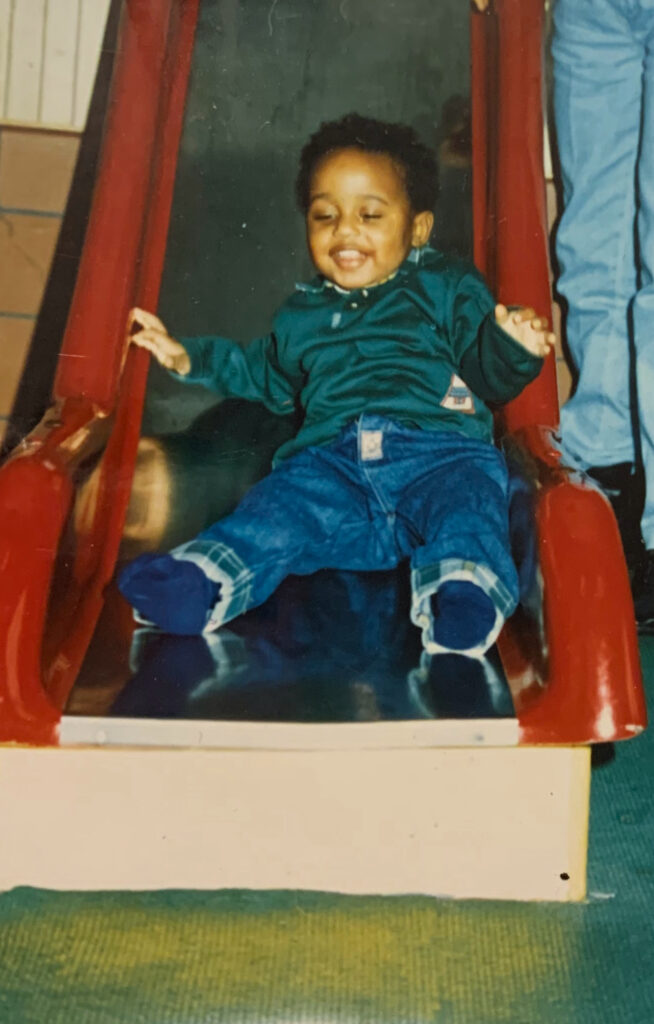Dating with Bipolar Disorder comes with many challenges, but so does grieving a parent or healing after divorce. I reflect on the impact of love and loss—from the end of my marriage to the deaths of my parents—and how each moment shaped my diagnosis and recovery. This is my story of heartbreak, healing, and finding strength in vulnerability.
Happy World Bipolar Day and Happy 1st Anniversary to Kaipolar Diaries!
Intro: 🎵Why Should I Be Sad – Britney Spears🎵
“Love is the message” is the phrase that has played over and over in my head as I’ve started and stopped writing this piece over the past 8 months. It’s also one of my favorite songs to vibe out to when I’m just relaxing or writing in my diary here. The topic of love has overwhelmed me as I’ve embarked on writing this next installment, since there are so many ways I could’ve approached it.
Should I talk about my relationship with my parents and how their deaths deeply impacted my mental health—which ultimately led to my Bipolar diagnosis? Should I talk about my ex-husband and the divorce that happened a few months prior to the loss of my mom—even though most people don’t know that I was ever married? Should I just keep it simple and only talk about dating with Bipolar Disorder, and share some practical tips on how to navigate romantic life as someone living with a mental illness?
I just didn’t know where to start. Every time I’d begin writing, I’d backspace everything. Crumpling up the proverbial notebook paper, starting over with a blank page to try and sort through my thoughts on this complex subject.
Writing Through the Messy Middle
During this time off, I explored so many questions and ideas. Now, I finally feel clear on what I want to say—and how I want to approach this next chapter of the project.
First, my intention is to keep giving a glimpse into the life of someone living with Bipolar Disorder. Second, I want to keep sharing helpful information for anyone navigating mental health challenges. And most importantly, I will continue writing from a place of transparency and open-heartedness.
I’ve let go of perfection. I’m choosing clarity, authenticity, and advocacy instead. My goal is to use my lived experience and storytelling to enlighten, educate, inspire, and push for change in the way society treats mental illness—and the conditions that often create it in the first place.
A Love Letter to the Life That Made Me
Kaipolar Diaries is a love letter. To the little boy from Bridgeport, Connecticut who was shuffled between his parents’ households his whole life. To the heartbroken young man who had to part ways with his first love to choose himself.
To the man who worked tirelessly for years to become a highly sought-after corporate powerhouse and motivational speaker—traveling the globe to share his wisdom—before his mother’s untimely death stopped him dead in his tracks.
Kaipolar Diaries is also a love letter to my parents. They invested so much into my education and exposed me to art and culture through extracurriculars to ensure I’d be well-rounded. Though I can’t tell them how much their investment means to me, I’ll say it here:
I would not have survived all the peaks and valleys of life without the experiences they gave me.

Gratitude for My Circle
Beyond being a love letter to my younger self and my parents, this piece is also dedicated to my incredible support system.
My siblings traveled thousands of miles to make sure I was okay. They reminded me to take my meds and helped me secure short-term disability from work when I needed it. My friends stood by me, cheered me on as I found my footing, and referred me to resources like NAMI. They even helped me transition from New York City to Miami Beach.
Some colleagues became lifelong friends. Others, temporary companions who showed up when I needed them most. But each one contributed something essential.
During my manic episodes and hospital stays, I felt like Alice falling into the rabbit hole. Or Dorothy drifting off in the poppy fields. I’m grateful to have had people who pulled me out of that daze, snapped the smelling salts, and reminded me who I was. Thank you for helping me get Back to Me.
For everyone on #TeamKaishon, I thank you. I wouldn’t be here without you.
Community and the Healing Power of Being Seen
One of the most fulfilling experiences I’ve had since starting this blog has been the feedback I’ve received from my community—both new and old. People from all corners of my life have reached out to share that they too live with Bipolar Disorder. Many had never told anyone before.
There’s a sense of fraternity among us. A club that nobody really asks to join, but once you’re in, you find a kind of understanding you never knew you needed. That’s what I found when I joined the Living with Bipolar support group at NAMI in 2022.
It was the first space where I felt truly seen—without judgment, without pity. Just real connection. Real advice. Real support. That group even helped me with medication changes, moving me from Lithium (which didn’t work for me) to Depakote, which helped me find my spark again.
I’m humbled that people feel safe enough to open up to me. That’s the energy I want to put into the world.
Self-Love as Survival
Before we get into the juicy stuff—dating and love—I need to say this: RuPaul was onto something with, “If you can’t love yourself, how in the hell you gonna love somebody else?”
But here’s how I interpret self-love: it’s self-preservation. It’s meeting your own needs, pampering yourself when you can, and surrounding yourself with people, places, and things that bring you joy. Giving yourself the royal treatment, even in small ways.
That’s part of my Mental Kaigene philosophy. It also teaches people how to treat you. When you carry yourself like royalty, others start to mirror that energy. Of course, that’s the ideal—at the end of the day, humans are gonna human. But for me, I’ll keep pouring into myself, showing up fully, and trusting the rest will follow.
Dating While Bipolar: Rejection, Realness, and Rebirth
As for dating? Whewww. It’s a mixed bag.
In my experience, it’s about 50/50. Half the men I date are understanding and accepting. The other half sprint in the opposite direction the second I mention Bipolar Disorder.
Take New Year’s Day 2024. I met someone who checked every box. We talked for hours. There was chemistry, connection—a vibe. He was mapping out our future, then I mentioned my diagnosis and the experiences that shaped me.
You could feel a sudden shift in the room.
His body tensed up. He made an excuse. Tied his shoes like he was training for a marathon. And he was out the door before I could fully process what had just happened.
Not necessarily how I wanted to start the year. But honestly? That moment gave me so much clarity. It taught me how I wanted to approach disclosure in future relationships—whether to say something on the first date, or wait until there was something more solid.
As I mentioned in my first Instagram post, I finally feel empowered to come out of the shame and shadow of my Bipolar Type I diagnosis. That rejection became the spark that lit the flame for Kaipolar Diaries.
Being Transparent While Dating with Bipolar Disorder
By that point, I’d been living with Bipolar Disorder for two and a half years and hadn’t been able to maintain a relationship for more than a few months. I was tired of hiding. Tired of shame.
I posted my first blog soon after that New Year’s Day encounter. And now, here we are. Living in Miami, people often swap social media handles before they even ask for your phone number. So I made a conscious decision: my mental health story lives on my page. Loudly. Proudly. No shame.
Anyone interested in me gets a front row seat. They get to see exactly who I am, how I show up, and how I care for myself. If they’re into that? Great. If not? That’s fine too.
Because I am fine with me.
What I Know About Love (So Far)
I’m not a dating coach. I’m not Lamont White, Patti Stanger, or Sima Taparia. But here’s what I’ve learned:
- Don’t settle. If someone doesn’t meet your standards or values—in any category—it’s a no.
- Trust your gut. It knows.
- Honor yourself. If you’re shrinking, over-accommodating, or trying to be someone you’re not—it’s not a match.
For those of you dating someone with Bipolar Disorder or another mental health condition, here’s a great resource from NAMI – How to Be Supportive of Your Partner with Mental Illness.
A Life I’m Proud Of
Since that fateful day in January 2024, my life has blossomed. I’m the happiest I’ve been since 2019. I live in my favorite city. I’m doing meaningful work. I get to speak, host, and moderate conversations with top organizations. My social life is full and still expanding.
There are challenges, sure. But overall? I’m thankful. I’m grounded. And I’m clear on my purpose. To share my love. My story. My experience. With those who need it.
Choose Love. Always.
In this chaotic world, I choose peace.
When I look around, I see abundance. I see love—for myself, from my family, from my friends, from my community. I have platforms to express myself. To connect. To heal.
And most importantly? I have choices. I get to choose who I am. I get to choose who I let in. I get to choose how I see myself. And so do you.
Whatever you want in this life—it’s possible. There is love around every corner. It may not always come from family or romance. Sometimes, it’s the stranger in the grocery store. Or the waiter who gives you a smile on a hard day.
Keep your heart open. Pass the love around like a hot potato. The world needs it.
Take care of yourself and be kind to others.
And one last thing.
Spread love—it’s the Kaishon (Hollo)way!
Xo,
Kaishon
Outro: 🎵I Just Wanna Be Happy – Gloria Estefan🎵



